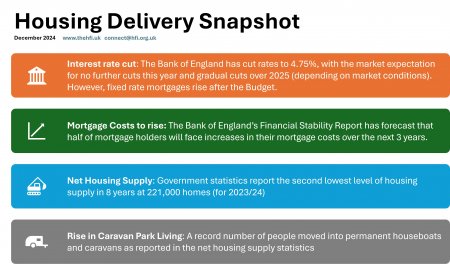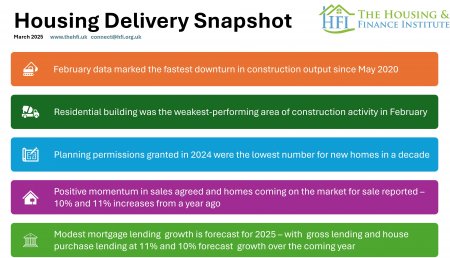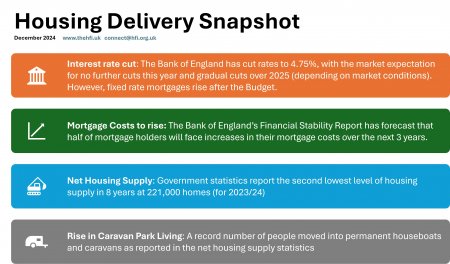

18 FEB 2025
Who will build the homes of the future?
 Shortages of skills in construction is not a new issue. In 1964 the Industrial Training Act set up 27 sector specific training boards to address market gaps in specific sectors, which included construction. Roll forward half a century and only 2 of the original 27 industries continue to have these special training support measures funded by industry imposed levies - construction and engineering. The Construction workforce is at its lowest absolute level since 1998. With many building workers approaching retirement and fewer young workers than needed, a new skills and training approach is vital to meeting future housing growth.
Shortages of skills in construction is not a new issue. In 1964 the Industrial Training Act set up 27 sector specific training boards to address market gaps in specific sectors, which included construction. Roll forward half a century and only 2 of the original 27 industries continue to have these special training support measures funded by industry imposed levies - construction and engineering. The Construction workforce is at its lowest absolute level since 1998. With many building workers approaching retirement and fewer young workers than needed, a new skills and training approach is vital to meeting future housing growth.
During the last two years Skills and Construction expert Mark Farmer has led a comprehensive review for government into what's needed to fire up skills capacity. He's set out the stark situation in his landmark report, together with a number of recommendations to improve the position.
The Farmer ITB report can be found here
The report includes the following key recommendations:
A 'whole workforce' approach: upskilling and reskilling existing employed and self-employed workers as well as new entrants and apprentices.
Flexible Career Pathways: more flexible, modular, and accelerated career pathways into and through the industry. Better absorption and retention of new entrants to reduce attrition rates from apprentice qualification to employment.
Digital Workforce Planning: the implementation of a strategic and digitally enabled workforce planning platform to better model demand and associated skills needs in the construction industry.
Digital Skills Passport: an industrywide digital skills passport system to improve worker quality assurance including worker competencies and ongoing skills training as well as basic health and safety matters.
A New Compliance Approach To Workforce Quality: a minimum standards-led workforce with better validation and policing of whole workforce capability spanning both directly and self-employed workers.
Harness Operational Efficiencies & Common Purpose: a single, repurposed (ITB) body with a whole-of-workforce focus, and a balanced accountability between industry and government respecting the varied specific needs of engineering, construction and homebuilding.
Others: public procurement and planning conditions reform
The Government has accepted a number of recommendations in the report and their response can be found here.
There is a lot of work ongoing in this area. For example, the Government response highlights the collaboration between the Construction Industry Training Board (CITB) and the National House-Building Council (NHBC) announced in November 2024, dedicating £140m to establish new Homebuilding Skills Hubs. The skills hubs aim to fast-track housebuilding training and apprenticeships, focusing on areas of critical industry demand.
It's worth highlighting that notwithstanding the longstanding skills shortages, housebuilding had recently hit high levels in delivery - before the latest downturn. For this reason, it would not be correct to conflate the need for skills investment and capacity building for the future with current industry capacity to deliver more homes now.
March 2025 Housing Delivery Snapshot

January 2025 Housing Delivery Snapshot

December 2024


